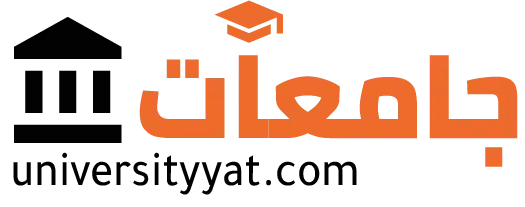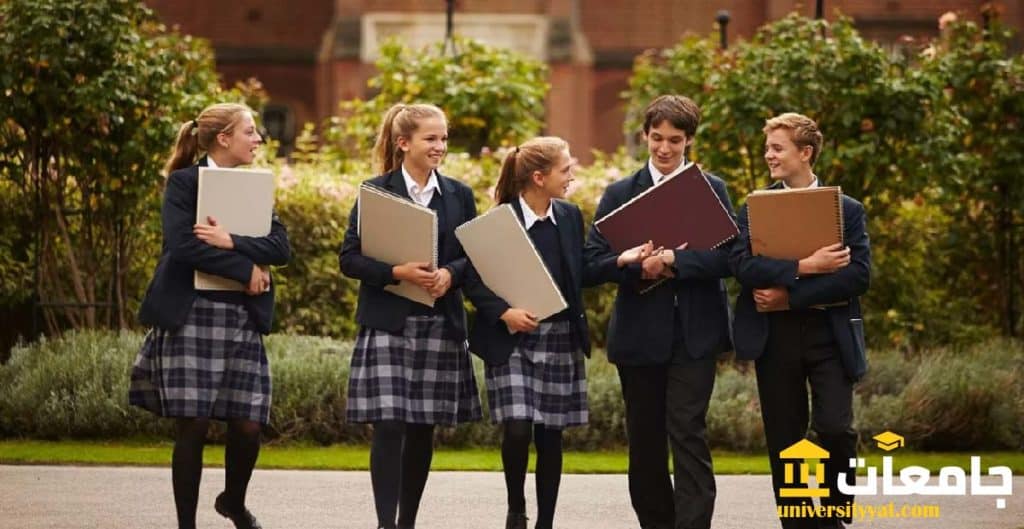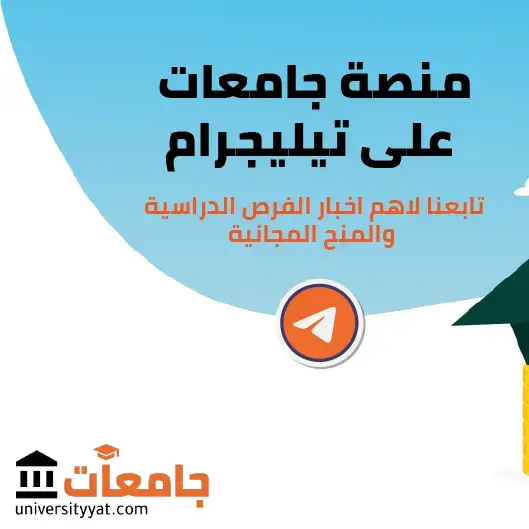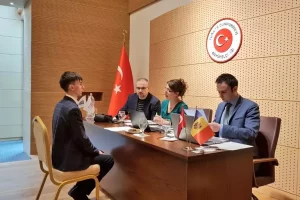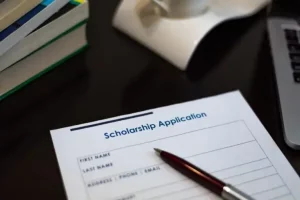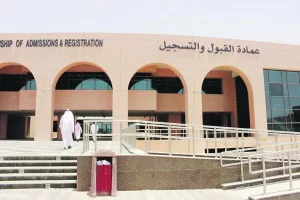How to Study in Russia! Everyone knows that Russia is the largest country in the world. With a population of approximately 145 million and being large enough to span over 11 time zones, it's no surprise that it's considered a superpower. The country is famous for its vibrant, centuries-old history, as well as its diverse culture.
However, Russia's main attraction isn't just its thriving economy; it's also one of the world's most popular study destinations. The country attracts over one million students annually and boasts over 700 higher education institutions, all ranked among the best in the world. Here, we detail the key aspects of studying in Russia for international students, such as the advantages, disadvantages, and steps involved.
Read:
- Why Study in China – 9 Reasons Why You Should Study in China
- Features of the education system in Malaysia
How to apply to study in Russia
To increase your chances of studying in Russia, you need to do the following:
- Prepare to finance your education. Most importantly, you must be financially able to study in Russia. You can do this by enrolling in affordable universities in Russia, working while studying, or receiving a scholarship.
- Willingness to meet application requirements.
- Next, you will need to apply to universities in Russia.
- After you are accepted, you need to apply for a student visa.
This sounds complicated, but we'll delve into this later in the article.
1. Financing your studies in Russia
Prospective students will notice that universities and institutions in Russia offer education at a relatively lower cost compared to other universities in the world, particularly in North America and Europe. Bachelor's degrees range from US$3,000 (200,000 Russian rubles). Postgraduate courses start from approximately US$3,400 to US$4,500 (approximately RUB240,000 to RUB250,000).
In terms of accommodation, this varies depending on the location of the university. Generally, accommodation costs can range from $100 to $600 (up to 30,000 Russian rubles) per month.
2. Fulfilling the general application requirements for studying in Russia for international students.
In this section, we detail the general requirements for applying to study as an undergraduate or graduate student at a Russian university for international students.
English language requirements for undergraduate students
Most universities and higher education institutions in the country tend to offer education in Russian as the primary language. However, with the number of international students attracted to Russia increasing each year, an increasing number of universities are offering courses in English, even for students who prefer this option over Russian.
Only a select few universities offer undergraduate programs taught in English to prospective students, which means they need to be flexible in their choices. For example, the Moscow Institute of Physics and Technology offers English-taught programs in aeronautical engineering, biomedical engineering, and computer science, requiring a minimum IELTS score of 5.0 or a TOEFL score of 65 for admission.
Another example is HSE University Which offers programs such as a Bachelor's in Data Science and Business Analytics. In this case, students must have an IELTS score of at least 5.0 or a TOEFL score of at least 70.
English language requirements for graduate students
Interestingly, Russian universities and higher education institutions offer more English-taught programs at the graduate level than at the undergraduate level.
Examples include Lomonosov Moscow State University (which offers programs in a range of departments from business administration to biological sciences), Moscow Institute of Physics and Technology, Saint Petersburg State University (offering over 10 English-taught Master's degrees), and Ural Federal University.
Most programmes are subject to the CEFR framework and require a B2 level of English.
Other major application requirements for undergraduate students
To study in Russia as an international student, you must meet the following requirements. Application requirements tend to vary from university to university, but the general requirements are as follows. Note that not all universities will require all of these requirements.
- Proficiency in Russian language One of the basic application requirements for all students, whether undergraduate or graduate, is proficiency in the Russian language. However, this isn't always a big problem—there's plenty of good news for most international students, and most universities and higher education institutions in Russia now have it.
- Unified State Entrance Examination This is an entrance exam similar to the SAT for US universities. Most Russian institutions require it as a prerequisite for admission. It consists of a two-part written paper and can be taken across a range of subjects and subject areas.
- Proof of English language proficiency- Usually through approved B2 exams.
- Academic texts – Texts such as GCSE/GCE exams (or international equivalent exams) .
- Medical certificate - Students will need to undergo medical tests to confirm that they are not diagnosed with certain diseases.
- CV
- Scanned copy of ID card/national passport
- Letters of recommendation/references – This usually depends on the university or program you are applying to but in most cases, 1 to 3 references or letters of recommendation from valid referees will be required with the application.
- cover letter
Other key application requirements for graduate students
In addition to most of the requirements mentioned in the previous section, graduate students do not have many prerequisites.
- Proof of previous degree: Of course, you will have to provide proof of your university degree usually in the form of a certificate or transcripts.
3. Applying to Russian universities
The application procedures for most Russian universities and higher education institutions tend to be fairly similar. Typically, the procedure is as follows:
- Select the program or degree you wish to study.
- Explore funding options as well as the availability of external scholarships at the university. You can do this even after you've identified the university you're interested in.
- Select the university or institution you wish to apply to.
- Prepare the necessary and specific documents for applying to the relevant course at the relevant university.
- Conduct necessary tests and competitive selection such as interviews, if applicable to the program you are applying to.
- Once you are accepted, prepare the necessary documents for your student visa application and submit them for approval!
This is the general outline when it comes to applying to universities and higher education institutions in Russia. These procedures are also outlined on most, if not all, university websites. For example, we've attached the application page for the Moscow Institute of Physics and Technology. MIPT outlines the "How to Apply" process as follows:
- Prospective students must choose a full-time program or course of study (i.e., either a Bachelor's, Master's, Doctoral, Preparatory, or Short-Term Training Program).
- Find a suitable program within the relevant degree level.
- Check if the student meets the admission requirements for the program.
- Collect the required documents for the application.
Applying to Russian universities is one of the most important steps for international students wishing to study in Russia, so be sure to follow the application process thoroughly.
4. Apply for a student visa
Student visas are obviously a very important aspect of the application process and are required for all international students wishing to study in Russia. Additionally, although the country is an extension of Europe, it is not a member state of the European Union/European Free Trade Association, so visa-free entry to the EU does not apply to studying in Russia. There are exceptions for students from certain countries, specifically those members of the Commonwealth of Independent States (CIS).
- Prospective students can start applying for student visas after accepting an offer from a Russian university and up to 45 days before their arrival in Russia.
- Students can apply for visas through their local Russian embassy or through a designated official visa center. Visa processing takes approximately 2 to 3 weeks.
- Documents required to apply for a visa:
- Official acceptance letter from the applying university or institution.
- Valid passport (valid for up to 18 months from the date of issue)
- Printed application form for Russian student visa
- A medical letter or certificate (specifically confirming HIV-negative status) no more than 90 days old at the date of application
- A notarized letter of consent from a parent or guardian for applicants under 18 years of age.
- Once the visa is approved and the student arrives in Russia, registration is mandatory at the local GUVM office, specifically within 7 days of arrival. Failure to do so may result in a fine or possibly deportation from the country.
- Visas are typically valid for up to 90 days from the date of approval. This can be extended for up to one year and renewed periodically by the local embassy.
For additional information regarding the student visa process, please click on This link Which will direct you to the VFS Global Russia website.
Advantages of studying in Russia
- The academic majors are technologically advanced.
- An excellent foundation for your future success.
- Exceptional experience in the field of education.
- Credentials are accepted worldwide.
- Ensure advancement in your field of work.
- Reasonable price.
- There are many benefits for students to attend school or university in Russia.
Disadvantages of studying medicine in Russia
Due to the limited availability of medical specialties and courses taught in English, students sometimes struggle to understand basic concepts. Classes will be taught in English only for those admitted to a university or college that requires proficiency in a particular language.
Food and accommodation are constant concerns when traveling internationally. Staying in a PG or rented room is more expensive than a college dorm, and there's also the issue of food hygiene to consider when eating away from campus.
Russian winters typically drop below zero for three to four months. However, every building has central heating. Indian students may find it difficult to adjust to the weather and, as a result, may experience health problems.
Studying medicine at the medical school level takes 5.8 years in Russia, although the same program takes only 5 years in other countries.
The Russian visa approval process is complex and time-consuming. Challenges arise for Indian students seeking a visa from the embassy to study MBBS abroad.
In Russia, students training are prohibited from interacting with patients, thus preventing them from gaining the necessary experience in this field. This may limit their exposure to the public.
Due to their lack of a large medical department, some Russian institutions may give the impression of being "medical universities," but in reality, their offerings are rather limited. These schools do not provide sufficient resources for medical education.
